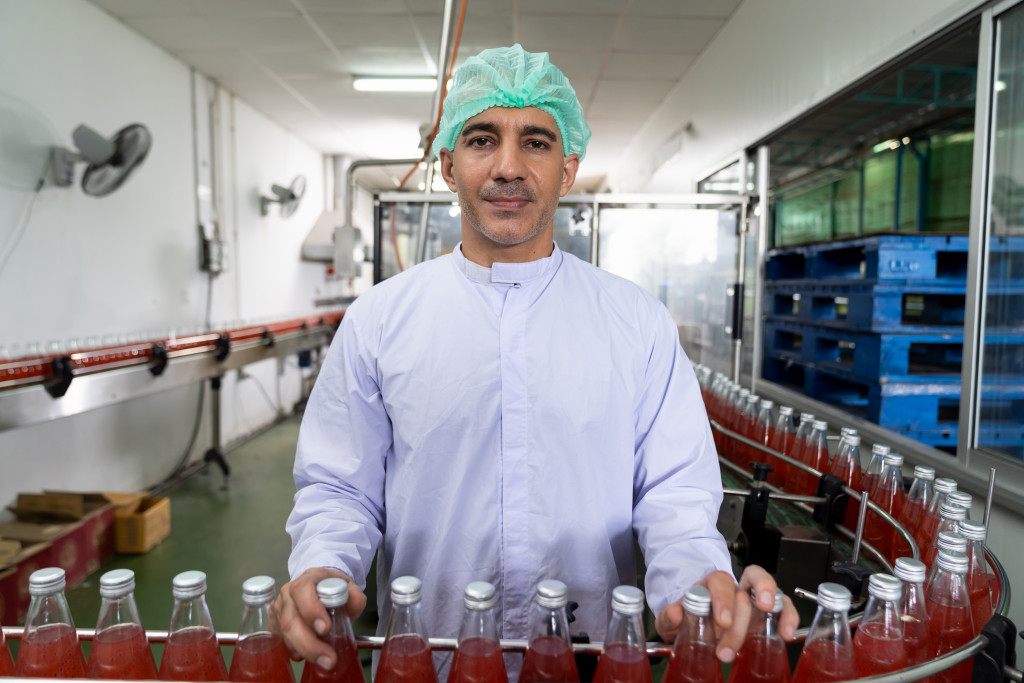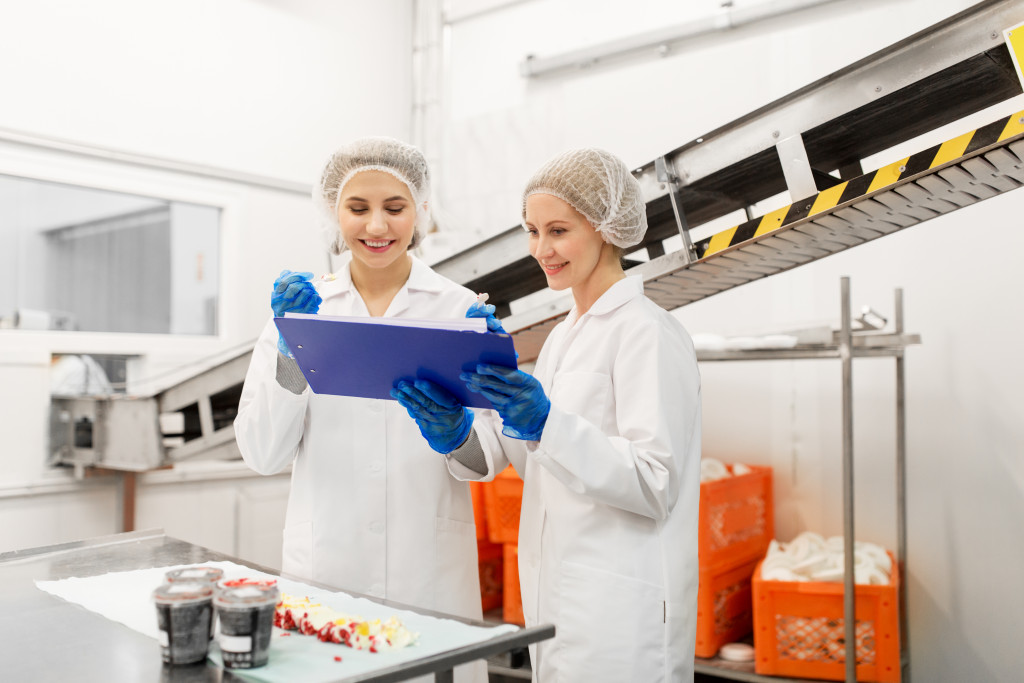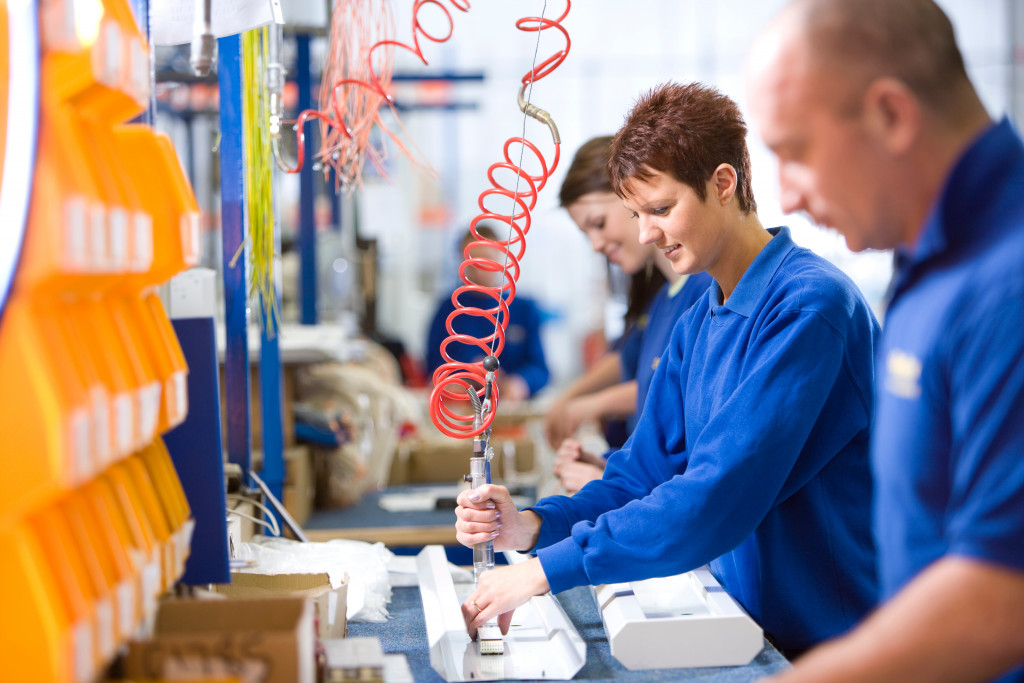- High-pressure processing and automated sorting and inspection are trending in food processing, ensuring product safety, longevity, and quality.
- Smart packaging, using sensors and advanced tech, monitor food quality and communicates information, improving safety and freshness.
- Automated piston fillers aid in efficient filling and consistent product quality, reducing waste and improving production efficiency.
- Blockchain technology and AI optimize supply chain management, enabling manufacturers to ensure safety, quality, efficiency, and sustainability throughout food production.
As technology continues to advance at a rapid pace, it is having a profound impact on the food manufacturing industry. From farm to table, technology transforms every aspect of the food production process, resulting in greater efficiency, safety, and sustainability. This article will explore the top technology trends in food manufacturing and how they shape the industry’s future.
Food Processing
Food processing is a critical aspect of the food manufacturing process. It involves transforming raw ingredients into finished products that are ready for consumption. The following are two areas that highlight some of the most important technology trends in food processing:
High-Pressure Processing
High-pressure processing (HPP) is a technology that uses high-pressure levels to eliminate harmful bacteria and extend the shelf-life of food products. HPP is beneficial in producing fresh juices, meats, and seafood, as it preserves the food’s nutritional value while ensuring its safety. By using HPP, food manufacturers can create products that have a longer shelf-life, which reduces waste and increases profitability.
Automated Sorting and Inspection
These technologies are becoming increasingly important in the food industry, enabling manufacturers to improve their products’ quality and safety while reducing waste. These technologies use advanced sensors and computer vision systems to sort and inspect food products, ensuring that only high-quality products make it to the market. With these technologies, manufacturers can quickly identify and remove product defects from the production line. As a result, food manufacturers can produce safer, higher-quality products at a lower cost.
Food Packaging
The packaging of food is an essential element of the food production process. It plays a vital role in preserving the food’s quality and freshness while protecting it from contamination. Here are some of the most important technology trends in food packaging:
Smart Packaging
This packaging is a rapidly growing trend in the food industry, as it enables manufacturers to improve their products’ safety and shelf-life while enhancing the customer experience. Smart packaging uses sensors and other advanced technologies to monitor the condition of the food and communicate information to consumers.
For example, smart packaging can detect when food is going bad and alert consumers via their smartphone, or it can provide information on the nutritional content of the food. Whichever way it is used, smart packaging has the potential to revolutionize the food industry by ensuring product safety and freshness.

Automated Piston Filler
An automated piston filler is a machine used to fill containers with liquid or semi-solid products. This technology is particularly useful in the food industry, as it precisely measures and fills products like sauces, dressings, and condiments. With an automated piston filler, manufacturers can significantly increase their production efficiency while reducing waste and ensuring consistent product quality. Thus, it is an ideal technology for food manufacturers looking to streamline their production processes.
Supply Chain Management
Keeping track of the entire food production process can be challenging, but with technological advances, it is becoming easier and more efficient. Technology enables manufacturers to better manage their supply chains, ensuring that the right ingredients are delivered on time and in the right quantities. Below are the most important technology trends in food supply chain management:
Blockchain Technology
Blockchain technology is increasingly used in the food industry to improve transparency and traceability throughout the supply chain. Every food production process can be tracked and verified with blockchain technology, from the farm to the grocery store. This technology enables manufacturers to ensure their products’ safety and quality while improving efficiency and eliminating counterfeit goods.

Artificial Intelligence
Artificial intelligence (AI) is being increasingly used in supply chain management to optimize logistics, reduce costs, and improve efficiency. AI-enabled systems can analyze vast amounts of data to identify trends and patterns, enabling manufacturers to make data-driven decisions and improve their overall supply chain management. With AI, manufacturers can improve their production efficiency, reduce waste, and ensure their products’ quality.
Technology is revolutionizing the food manufacturing industry, transforming every aspect of production from farm to table. The above trends are just some of the most important technological advances to watch out for, as they can potentially revolutionize the industry. By leveraging these technologies, food manufacturers can produce higher-quality products at lower costs while ensuring safety and sustainability.

